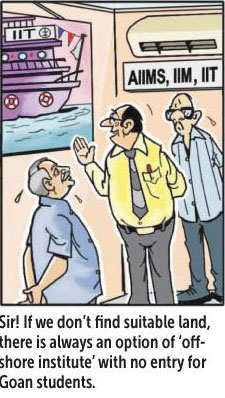
Shanti Maria Fonseca
In a televised address on the evening of March 24, Prime Minister Modi announced a 21-day nationwide lockdown from midnight that day. The lockdown measures included banning train services, road transport and air travels to stem the spread of the novel corona virus. The lockdown was extended thrice thereafter.
When the PM announced the first lockdown on March 24, he gave about three-and-a-half hours notice to India, including the Chief Ministers of States (28) and Union territories(8). The Railways, which carry 23 million passengers on any day, cancelled all trains. Migrants rushed towards the bus and railway stations. But all gates were closed. Needless to say the nationwide lockdown declared at short notice had caused immense distress to the common people and migrant workers around the country. We have no idea about how the Prime Minister took the decision he did. The unfolding miseries of millions of poor people in the world’s largest corona virus lockdown is the greatest man-made tragedy in India since Partition, says historian and economist Ramchandra Guha. The tragedy has three dimensions – public health, economy and society. The economy was already in shambles before the pandemic, and we are now in a state of near collapse. The unemployment rate is in the region of 25%. According to an assessment by the Reserve Bank of India, the economy is expected to contract for the first time in nearly 40 years, due to demand compression and supply disruptions. In the midst of this mega crisis, those in power at the centre can think only of building or promoting the interests of their own party. India could have avoided many deaths and economic losses if the Centre had prepared itself when China reported the first COVID-19 cases. As always, the down-trodden sections of our society who have nothing to fall back on have always had to bear the brunt of every blunder of those in power.
Thousands of migrant/guest workers have walked home hundreds of kilometers across India in a desperate attempt to reunite with their families in their native places. Questions are now being raised, though belatedly about their welfare and the lack of legal protection for their rights. Right from the start, the fight against COVID-19 has suffered from the ‘invisibilising’ of the poor. When the PM asked people to fight the virus with thaalis and light and Diva’s from their balconies, he forgot that the poor don’t have balconies and no oil in their Divas! When social distancing was made a central point of the campaign, the impossibility of it in slums, common homes and in
The COVID-19 crisis has exposed the stark and uncomfortable truths about inequalities in societies around the world and the indefensible contrasts in our lifestyles. The migrant crisis has exposed how we truly treat the fellow humans who toil in our society. A human catastrophe of this size should have sparked a debate on the condition of our workers and the need for providing them a comprehensive and befitting social security cover. At a time when governments should be thinking of strengthening labour laws and social security provisions especially for the migrant labour, contract and casual workers, - their dilution in the name of “reforms” is nothing short of a cruel joke, nay, a dastardly crime! It is no surprise, then, that Indian workers are moving back to their home states in such large numbers, even if only to a future that is, unfortunately, equally uncertain.
Weakening labour laws just when they needed greater legal reinforcement and greater social cover, shows an utter lack of vision and understanding by the ruling dispensation. In the face of this humanitarian crisis, the response of the government has been limited to arranging their travel back home through Shramik trains. No effort has been made to restore the incomes they lost in places where they worked. Where are the enforcement agencies? is the role of the Labour Ministry in such conditions? The current crisis has comprehensively exposed the inadequacy of the Inter State Migrant Worker Act. (ISMW Act). It is common knowledge that most of the migrant workmen are not routed through licensed contractors. This small catch, in the definition, has been sufficient to exclude bulk of the migrant workmen from getting any benefit out of the Act. While it has become anachronistic, the need for legal safeguards and welfare measures for migrants has become even more pressing and urgent.
The Millennium Development Goals were a pledge to uphold the principles of human dignity, equality and equity, and free the world from extreme poverty. How near are we in achieving these legitimate goals? Workers’ rights should be the central focus of development. This is an era of organisation. While capital has been organising itself, it is high time labour gets itself organised too. Undoubtedly, the d trade unions have a major role to play in defending and promoting the rights of migrant workers.
The mass migration that has taken place is distressing to the point of being gut-wrenching, the images and ordeals are unbearable, their feats super-human! Yet in spite of what appears to be insurmountable odds the desperate and hungry have proceeded home stoically and largely peacefully. If ever these guest workers return back again, it will be on their terms. Short of the migrant tag, they will become part of the community at large. This is not wishful thinking. Return migration is inevitable but the equations have changed forever. The fear of death from Covid-19 or increasing hostility from the host communities is what ensured that the initial trickle developed into an exodus. Suddenly, the home far away became more secure. The migrant sentiments accelerated to a crescendo of mass hysteria, leading to the long march to their homes. The issue of migrants has become a challenge to the world at large.
(The writer is a social scientists and practicing criminal lawyer).
